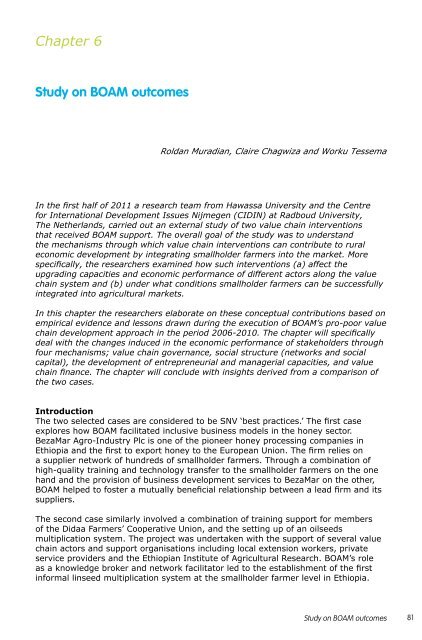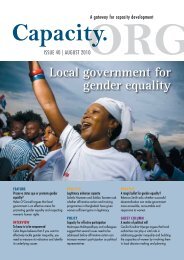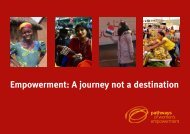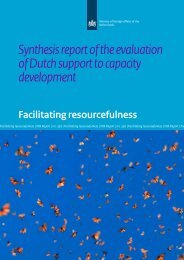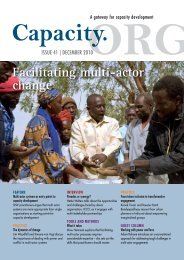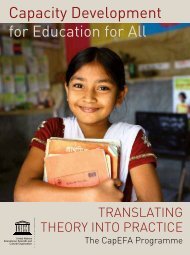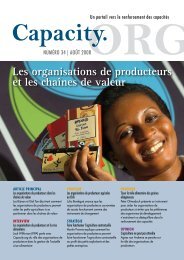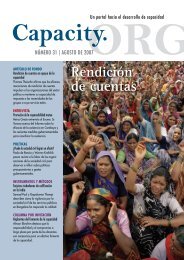Pro-Poor Value Chain Development - Capacity.org
Pro-Poor Value Chain Development - Capacity.org
Pro-Poor Value Chain Development - Capacity.org
You also want an ePaper? Increase the reach of your titles
YUMPU automatically turns print PDFs into web optimized ePapers that Google loves.
Chapter 6<br />
Study on BOAM outcomes<br />
Roldan Muradian, Claire Chagwiza and Worku Tessema<br />
In the first half of 2011 a research team from Hawassa University and the Centre<br />
for International <strong>Development</strong> Issues Nijmegen (CIDIN) at Radboud University,<br />
The Netherlands, carried out an external study of two value chain interventions<br />
that received BOAM support. The overall goal of the study was to understand<br />
the mechanisms through which value chain interventions can contribute to rural<br />
economic development by integrating smallholder farmers into the market. More<br />
specifically, the researchers examined how such interventions (a) affect the<br />
upgrading capacities and economic performance of different actors along the value<br />
chain system and (b) under what conditions smallholder farmers can be successfully<br />
integrated into agricultural markets.<br />
In this chapter the researchers elaborate on these conceptual contributions based on<br />
empirical evidence and lessons drawn during the execution of BOAM’s pro-poor value<br />
chain development approach in the period 2006-2010. The chapter will specifically<br />
deal with the changes induced in the economic performance of stakeholders through<br />
four mechanisms; value chain governance, social structure (networks and social<br />
capital), the development of entrepreneurial and managerial capacities, and value<br />
chain finance. The chapter will conclude with insights derived from a comparison of<br />
the two cases.<br />
Introduction<br />
The two selected cases are considered to be SNV ‘best practices.’ The first case<br />
explores how BOAM facilitated inclusive business models in the honey sector.<br />
BezaMar Agro-Industry Plc is one of the pioneer honey processing companies in<br />
Ethiopia and the first to export honey to the European Union. The firm relies on<br />
a supplier network of hundreds of smallholder farmers. Through a combination of<br />
high-quality training and technology transfer to the smallholder farmers on the one<br />
hand and the provision of business development services to BezaMar on the other,<br />
BOAM helped to foster a mutually beneficial relationship between a lead firm and its<br />
suppliers.<br />
The second case similarly involved a combination of training support for members<br />
of the Didaa Farmers’ Cooperative Union, and the setting up of an oilseeds<br />
multiplication system. The project was undertaken with the support of several value<br />
chain actors and support <strong>org</strong>anisations including local extension workers, private<br />
service providers and the Ethiopian Institute of Agricultural Research. BOAM’s role<br />
as a knowledge broker and network facilitator led to the establishment of the first<br />
informal linseed multiplication system at the smallholder farmer level in Ethiopia.<br />
Study on BOAM outcomes<br />
81


